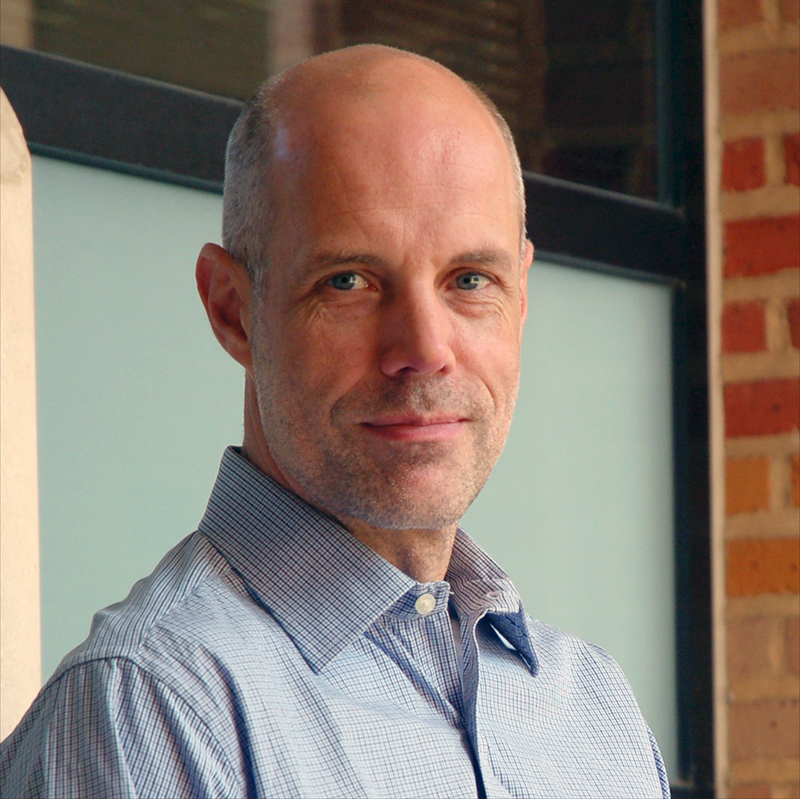Mark Moll is a Senior Research Scientist focused on planning and autonomy at Metron, a leading company in providing mathematical and scientific tools that aid in decision making. He lives in Portland, Oregon.
Mark Moll has worked in robotics for more than 25 years, with a focus on motion planning. Previously, he was the Director of Research at PickNik, a robotics software development and consultancy company that is supporting the MoveIt motion planning framework. Prior to that, he was a senior research scientist in the Computer Science Department at Rice University, where he led the development of the Open Motion Planning Library (OMPL), which is widely used in industry and academic research (often via MoveIt / ROS). He has over 85 peer-reviewed publications with research contributions in applied algorithms for problems in robotics and computational structural biology. He has extensive experience deploying novel algorithms on a variety of robotic platforms, ranging from NASA’s Robonaut 2 to autonomous underwater vehicles and self-reconfigurable robots.
Mark Moll received an M.S. in Computer Science from the University of Twente in the Netherlands and a Ph.D. in Computer Science from Carnegie Mellon University where he worked with Michael Erdmann and Matt Mason. Afterwards, he was a postdoctoral research associate in Lydia Kavraki’s group. After being a research scientist at the University of Southern California’s Information Sciences Institute for a while he returned to Rice University. In September 2019 he joined PickNik.
More details can be found in his curriculum vitae.
News
2023
- I started a new position as Senior Research Scientist at Metron!
- I am one of the organizers of the Workshop on Space Robotics Software at the IEEE Space Mission Challenges for Information Technology / IEEE Space Computing Conference (SMC-IT/SCC). This event will be held July 18–21 2023 at Caltech in Pasadena, CA.
- In January, I presented our R&D from the past couple years at the AIAA SciTech Forum in National Harbor, MD.
2022
- We managed to obtain funding from three different agencies to advance the state of the art in space robotics: NASA, Space Force, and the state of Colorado. See press release for details.
- I presented our work on supervised autonomy at NASA JPL on December 7th.
- I am one of the invited speakers at the IROS 2022 Workshop on Evaluating Motion Planning Performance, organized by Lydia Kavraki and members of her lab. The event was held October 23 in Kyoto. The lineup of invited speakers was excellent and I was honored to have been invited!
- Along with several other PickNikers, I attended ROSCON 2022 in Kyoto, October 19 through 21. We had several presentations and a booth.
- I was honored to give a talk (in person!) at Georgia Tech in January on motion planning and supervised autonomy as part of the Institute for Robotics and Intelligent Machines (IRIM) Seminar Series.
2021
- Together with others from PickNik and Hello Robot I organized a workshop on mobile manipulation with MoveIt 2 at this year’s ROS World.
- PickNik recently won a NASA SBIR Phase II grant (for which I am the PI) to develop new supervised autonomy solutions for application in space and on earth. The commercially available version is called MoveIt Studio, with an initial release slated for Summer 2021.
- I gave an invited talk on robot autonomy at Galois in May 2021.
- MoveIt has been selected again for the Google Summer of Code. Like last year, I am both an organizer and mentor.
- I participated in a panel discussion of motion planning in industry on April 14 at the University of Michigan with George Konidaris (Realtime Robotics / Brown University), Michael Koval (Waymo), and Parker Owan (Amazon Robotics). Professor Dmitry Berenson from the University of Michigan moderated the discussion.
- World MoveIt Day on March 10 was another successful edition of this yearly day-long hackathon and community event. We had lightning talks, lots of good discussions, and—of course—plenty of coding.
2020
- My work on using Augmented Reality in human-robot collaboration with Juan David Hernández, Lydia Kavraki and others was featured in IEEE Xplore Innovation Spotlight.
- PickNik organized a MoveIt session at ROS World, a one-day online conference on all things ROS on November 12th. Stay tuned for details!
2019
- PickNik organized a well-attended MoveIt workshop after ROSCON 2019 in Macau. I gave a talk on guaranteeing optimality and satisfying hard constraints in motion planning using the Open Motion Planning Library.
- I gave a talk entitled “Toward Robot Autonomy: Tasks, Plans, and Policies” at the Texas Systems Day on April 5, 2019 at Texas A&M.
- I gave a talk entitled “Robot Motion Planning: Challenges and Opportunities for Increasing Robot Autonomy” at the Technology Collaboration Center’s Automation, AI & Robotics Workshop on March 27, 2019 held at the NASA Johnson Space Center.
